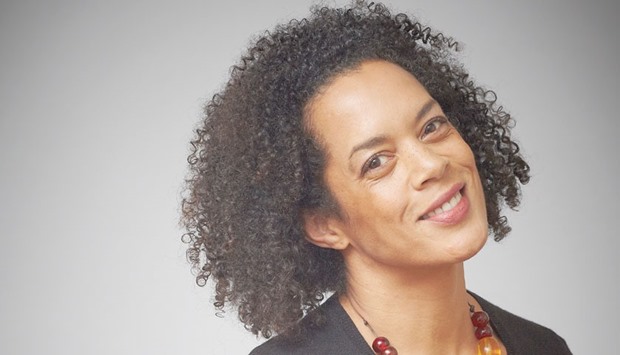In her acclaimed works of fiction and non-fiction, Scottish writer Aminatta Forna delves into the prelude and the aftermath to war, memory, the conflict between private narratives and official histories, and examines “how the gradual accretion of small, seemingly insignificant acts of betrayal find expression in full-scale horror”.
On Wednesday at 6pm, the Library at Georgetown University in Qatar (GU-Q) will host an evening with Forna, the award-winning author of The Hired Man, who will read from and discuss her latest highly acclaimed novel. The event, which will be held at the auditorium, will be in English with simultaneous Arabic translation. You can RSVP by visiting the GU-Q website. A reception and book-signing will follow the discussion; copies of the book are available for sale at the Georgetown Bookstore.
“Every year, Georgetown invites respected international authors to Qatar, who meet with our first year students and the wider public to discuss their work,” GU-Q Library Director Donna Hanson told Community, “We are looking forward to welcoming Aminatta Forna to our campus to discuss her award-winning novel, and hope it will help cultivate a love of reading among those who meet her.”
Born in Scotland, raised in Sierra Leone and Britain, Forna spent periods of her childhood in Iran, Thailand and Zambia. She is the award-winning author of the novels The Hired Man, The Memory of Love, and Ancestor Stones, and a memoir The Devil that Danced on the Water. Among other accolades, she was announced as the recipient of the 2014 Windham–Campbell Literature Prize (Fiction).
The Hired Man tells the story of a Croatian village and the English family who buy a holiday home there. A tale of war, betrayal and secrets that linger, it is a powerful novel about the indelible effects of war and the memories which stir beneath the silence of a quiet Croatian town.
“Gost is surrounded by mountains and fields of wild flowers in which nobody walks. The summer sun burns,” a brief introduction to the novel reads, “The winter brings freezing winds. Beyond the boundaries of the town an old house which has lain empty for years is showing signs of life. One of the windows, glass darkened with dirt, today stands open and the lively chatter of English voices carries across the fallow fields. Laura and her teenage children have arrived.”
“A short distance away lies the hut of Duro Kolak who lives alone with his two hunting dogs. As he helps Laura with repairs to the old house they uncover a mosaic beneath the ruined plaster and, in the rising heat of summer Grace, Laura’s daughter, painstakingly restores it. But Gost is not all it seems; conflicts long past still suppurate beneath the scars.”
Forna’s third novel, like her previous works, earned heaps of praise. As Helen Dunmore pointed out in her review of the book for The Times, “Knowing, and not daring to know; the difference between innocence and ignorance; the dangers of people entering situations that they do not understand: all of these are Forna’s themes, expressed with a deliberated coolness of tone.
The best of this novel lies in its bleak, thoughtful insistence that the lives that have to be lived after the killing is over are almost beyond the comprehension of outsiders. To recognise what you do not understand is, perhaps, the first step on the journey.”
In his review for The San Francisco Chronicle, Anthony Domestico wrote, “There are few contemporary writers who bear better witness to history’s nightmarishness – its surreal violence and its ability to trap us in cycles of brutality – than novelist Aminatta Forna.”
Forna’s The Memory of Love, a story about friendship, war and obsessive love, was awarded the Commonwealth Writers’ Prize for ‘Best Book’ in 2011. Ancestor Stones, her second book and first novel, was winner of the Hurston Wright Legacy Award for Debut Fiction, the Liberaturpreis in Germany and the Aidoo-Snyder Book Prize.
Her first book, The Devil that Danced on the Water, a memoir of her dissident father and of Sierra Leone, received significant critical acclaim across the UK and the US. Her father Mohamed Forna, a doctor and political dissident, was hanged by the Sierra Leone regime in 1975, when she was 11.
Forna’s books have been translated into 16 languages. Her essays have appeared in Granta, The Guardian, The Observer and Vogue. She has written stories for BBC radio and her TV credits include The Lost Libraries of Timbuktu (BBC Television, 2009).

WRITER AND THE WORLD: Scottish author Aminatta Forna spent periods of her childhood in Iran, Thailand and Zambia. She is the author of The Hired Man, The Memory of Love and other works. Photo by Jonathan Ring.
